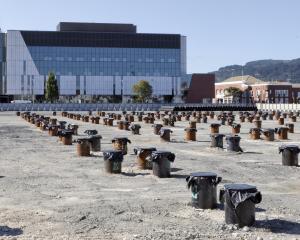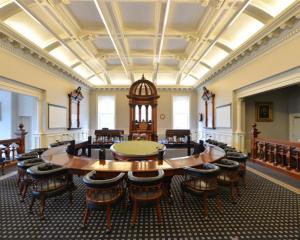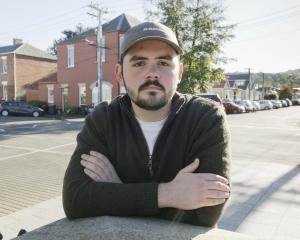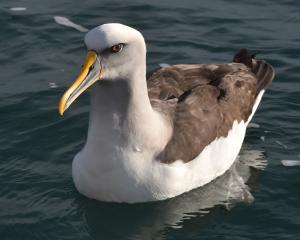
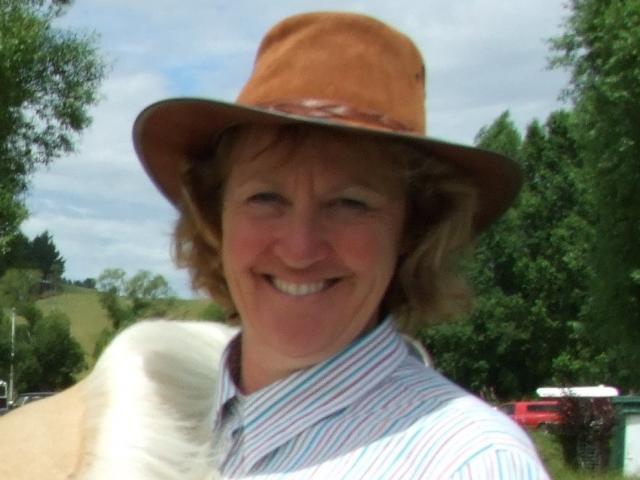
Among those to speak was Carol Dempster, of Ocean View, who joined the chorus of horse-lovers criticising the council's handling of the bylaw process.
The draft bylaw, which attracted 433 submissions, initially proposed changes including restricting horses to above the high-tide line on city beaches.
The proposal prompted an outcry, but it later emerged the Otago Regional Council had jurisdiction below the high-tide mark and the DCC claimed it was only trying to protect sand dunes.
That was too late to stop a flood of submissions from horse riders and trainers, many of whom feared the change would drive horses off the city's beaches altogether.
Ms Dempster was among them, and yesterday chided the panel for its ''irresponsible'' handling of the process.
The first she knew of the threat to her way of life was when a report on the bylaw's proposals appeared in the Otago Daily Times.
She was ''not convinced'' the equestrian community had been properly consulted and doubted the ORC had been either.
Megan Brick, of Brighton, agreed, saying the council's communication had been ''pretty disappointing''.
There were nine pony clubs in Dunedin, as well as horse trainers and horse trek operators, but none had been contacted about the changes, she said.
''This could have the potential to have a huge impact on their livelihoods.''
Even if the reaction from horse owners was based on a ''complete misunderstanding'' of the bylaw's intent, it was still ''quite time costly'' for them, she said.
''It could have been avoided,'' she said.
Council parks and recreation planner Ashley Reid, who wrote the draft bylaw, responded by apologising for the ''rushed'' handling of the process.
''The process was time-constrained and unfortunately our consultation with the ORC could have been better,'' he told Ms Dempster.
However, the submissions process and hearing were among the ''checks and balances'' that identified ''what isn't quite working'' and improved the result, he said.
''That's part of the process.''
Ms Dempster said the council needed to learn from its mistakes, ''because it's caused a lot of distress in the community''.
Others to submit yesterday included Peter Gibbons, for Surf Life Saving New Zealand and its Dunedin clubs.
He supported the new rules, including a vehicle ban for some beaches and a speed limit at others, but wanted an exemption for surf life-saving clubs' activities.
''All we are trying to do is make sure we don't get swept up as an unintended consequence,'' he said.
Panel member Cr David Benson-Pope assured him there was no intent to impede the clubs' ''admirable activities''.
Another submitter, Hare Hill Horse Treks owner Oliver Goldsmith, whose business offered horse rides along Aramoana's beaches, said the changes being considered could still adversely affect his business.
The initial proposals had been confusing, and he was happier the revised proposals now included adding Aramoana to the list of beaches at which horse riding was allowed.
Until now, horses had technically only been allowed at four Dunedin beaches - Tomahawk, Smaills, Waikouaiti and Island Park - although the rule had not been enforced.
However, Mr Reid said some submitters still wanted Aramoana's Shelly Beach, on the eastern side of the mole, to be declared an ecological zone, with horses prohibited, to protect wildlife.
Mr Goldsmith said he took numerous steps to protect wildlife and the environment, but some people would always see his business as ''morally wrong''.
Blocking access to Shelly Beach would remove one quarter of the available riding space at Aramoana and ''affect our business adversely'', he said.
Others reiterated the need to put the city's ecological values first, including plant ecologist Joseph Dougherty, who said the city needed to take a longer-term view.
He said Dunedin's coastal reserves were home to ''incredible marine diversity''.
However, it was in conflict with a variety of recreational activities which could not all be accommodated, he said.
''We need to do something more about this ... or we won't have much to shout about in 30 or 40 years' time.''
The hearing will conclude with largely non-public deliberations on the draft bylaw on Tuesday.


